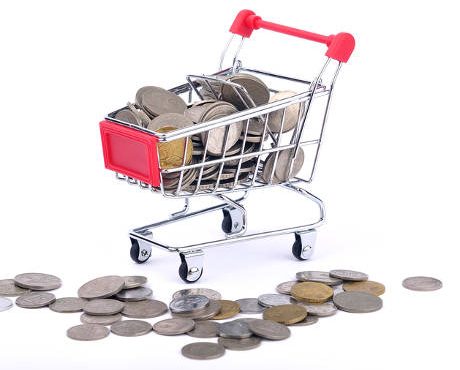Procter & Gamble Co: A Name to Own Forever?
Procter & Gamble Co (NYSE:PG) is the ultimate “forever stock.”
The company has been in business since 1837. Investors are earning a current shareholder yield of nine percent.
It’s no wonder some of the smartest money managers in the world own this stock. Warren Buffett is a longtime shareholder. Other Wall Street titans, including Ken Griffin, Ken Fisher, and Phill Gross, also own large stakes in the business.
Let me explain.
As I’ve been expecting for years, the world is now flocking toward forever stocks.
Put simply, forever stocks are businesses you can own for the rest of your life. When you hold names like these, you no longer have to worry about inflation, bear markets, or the next President. These wonderful businesses just carry on, cranking out oversized dividends decade after decade.
Today, investors are fleeing foreign banks and junior mining companies—some of the more speculative investments around. Forever stocks, though, are holding up just fine. While the market is sinking, wonderful businesses like PepsiCo, Inc. (NYSE:PEP), Johnson & Johnson (NYSE:JNJ), and Wal-Mart Stores, Inc. (NYSE:WMT) are near all-time highs.
I’m not surprised. Forever stocks stand above your average investment; they’re different from “the market.” These legacy-type assets are vastly better.
My philosophy? Keep them, stash the certificates away, and keep cashing the dividend checks. Most investors spend too much time trading or trying to find the next hot tech startup. Identifying the hallmarks of a forever stock, though, is the single biggest edge you can have in the stock market.
To illustrate, let’s use consumer product giant Procter & Gamble Co as a case study.
The first hallmark of a forever stock is being a timeless business. Is the company simple to understand? Can you imagine your great grandchildren using this product or service?
Procter & Gamble hit it big during the Civil War, when the company supplied soap and other cleaning products to the Union Army. Around the turn of the century, the company knocked it out of the park with “Ivory,” “Crisco,” and other brands. Today, the company is a consumer behemoth, with dozens of well-known products like “Tide,” “Crest,” and “Bounty.”
I don’t know what the next hot gadget will be in 2020, nor do I know what social media site tweens will prefer in 50 years (heck, they barely existed 10 years ago). You can be pretty confident, though, that people will be using P&G products to wash their clothes, shave their skin, and clean their houses.
Also Read:
These 15 Top Dividend Stocks Have Paid Shareholders for 118 Years
Top Retirement Stocks to Watch in 2017
Second, forever Stocks have thick profit margins. These firms dominate their industry. Their entrenched position and competitive advantages result in robust cash flows year after year.
P&G gushes profits. Gross margins come in around 50% and net margins are consistently in the mid-teens. Only a few businesses in the world crank out numbers like this.
The ability to keep a loyal customer base is a hallmark of the world’s best companies. Customers are willing to pay a premium for P&G’s products, allowing the firm to generate strong free cash flows and thick profit margins. This puts them in a better position to return money to shareholders through dividends and buybacks.
The third sign of a forever stock is a long history of paying dividends. P&G’s dividend is like a Swiss train; it always comes in on time. For over a century, this company has paid a distribution to shareholders. In fact, the company hasn’t skipped a payment since 1891.
Think of everything that has happened over that time: the World Wars, the Great Depression, asset bubbles—the list goes on. Yet through it all, PG stock has paid out dividends to shareholders like clockwork.
Yield hogs may not be impressed with Procter & Gamble’s three-percent payout, but they’re missing the big picture. In addition to paying out dividends, P&G also has a ravenous appetite for its own stock. Next year, management plans to return $22.0 billion in capital to investors, which equals a nine-percent payout on a shareholder yield basis. (Source: Procter & Gamble Earnings Release: Q4 FY 2016 Results, Procter & Gamble Co, August 2, 2016.)
And this is just the beginning. Over the next three years, executives expect to deliver as much as $54.0 billion to shareholders through dividends and buybacks. This represents a nearly 25% payout to owners based on the company’s current market value.
Bottom Line on Procter & Gamble Co
Identifying forever stocks is a lot of common sense. Wonderful businesses with loyal customers, strong margins, and oversized dividends should do better over the long run. You don’t need a Ph.D to figure that out.
Sure, Procter & Gamble Co won’t impress your friends at the next cocktail party, but PG stock will, in all likelihood, continue to crank out distributions for years to come. This is one dividend stock to consider owning for the next 100 years.
